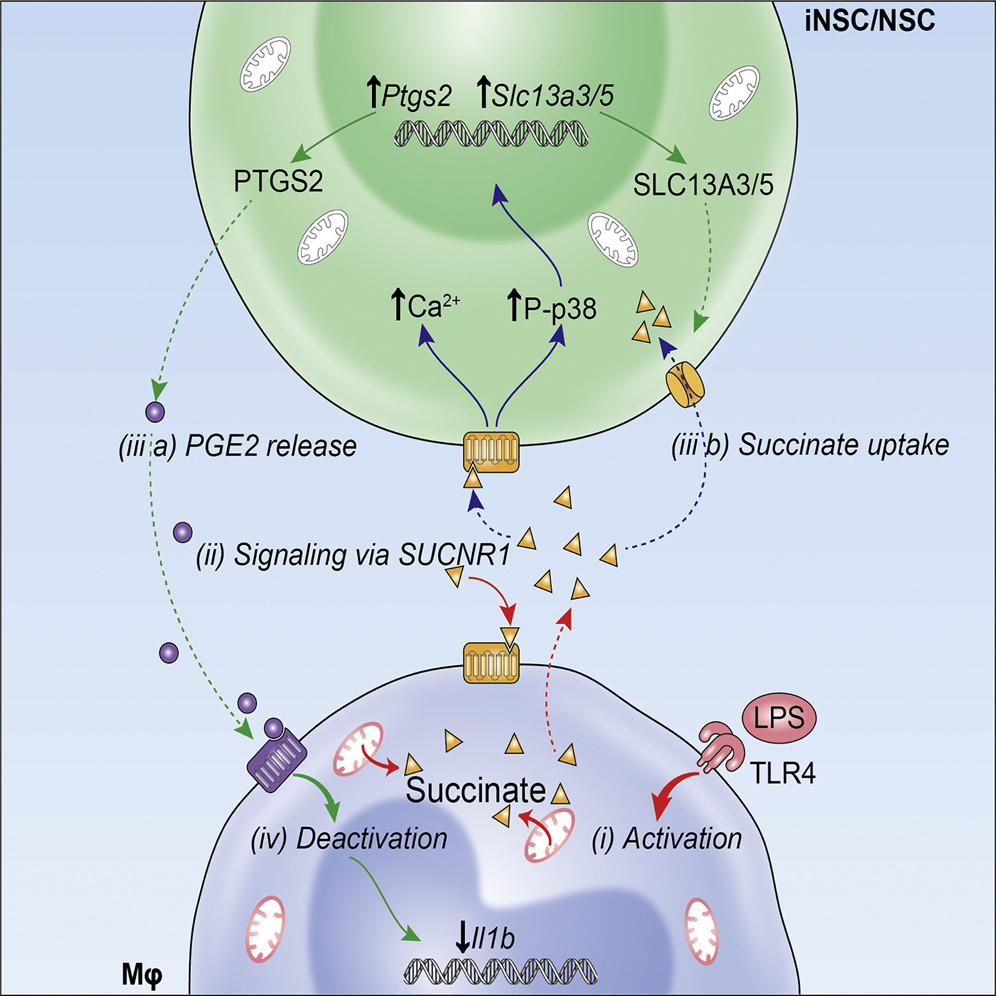
Neural stem cells (NSC) are emerging as a very promising new therapeutic tools in neurodegenerative diseases by virtue of their immuno-modulatory abilities; however the cellular and molecular mechanism that are behind their properties have not been fully elucidated yet. In this paper, published on Cell Stem Cell by Luca Perruzzotti-Jametti and colleagues, demonstrated that NSCs might reduce neuroinflammation by reducing succinate, which acts as an immunometabolite that is produced by pro-inflammatory myeolid phagocytes, during immune response, by triggering a plethora of inflammatory stimuli.
NSC are able to reduce succinate production and signalling, which during inflammation promotes the production of reactive oxygen species and pro-inflammatory cytokines, through the action of GPR91 receptor, expressed on NSC surface, that upon engaging succinate, induces its own NSC-mediated scavenging, which in turn results in reduced neuroinflammation.

